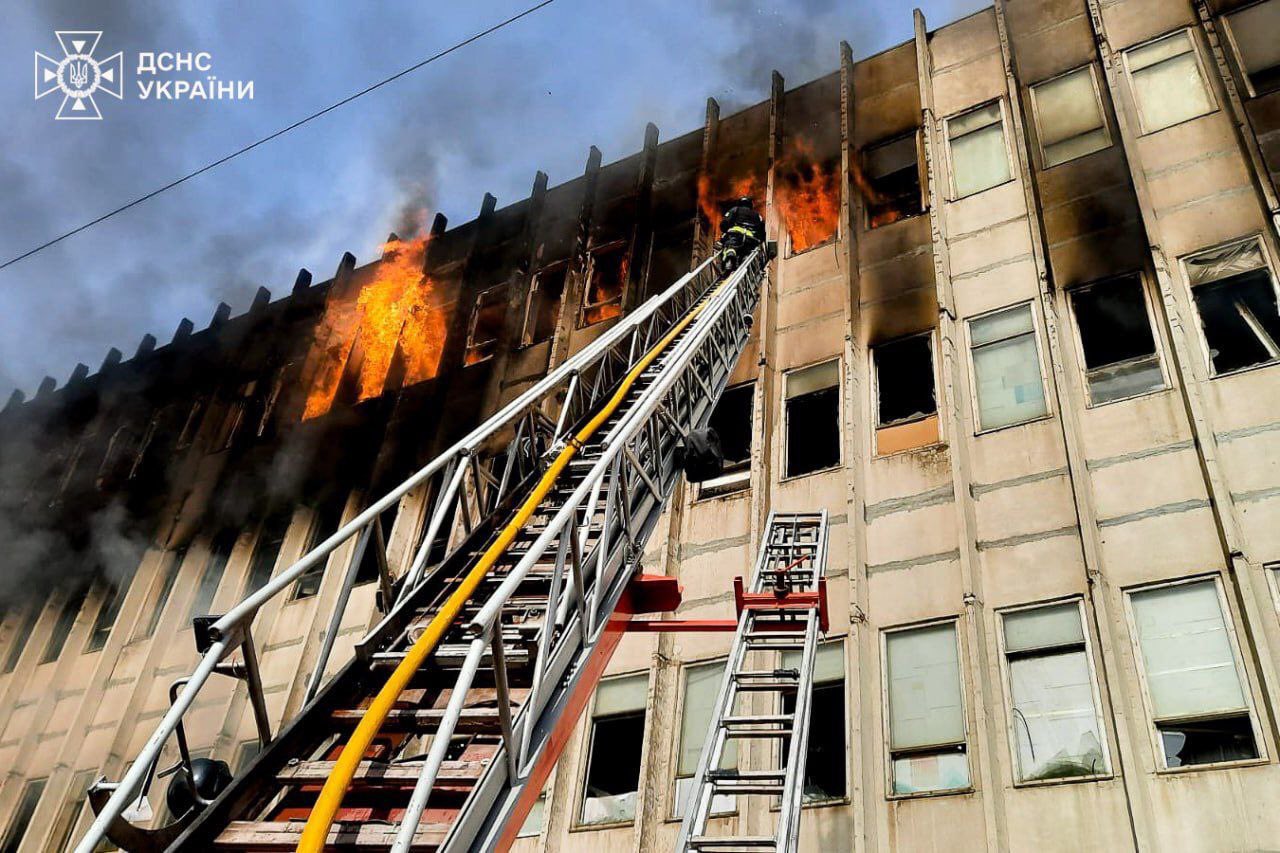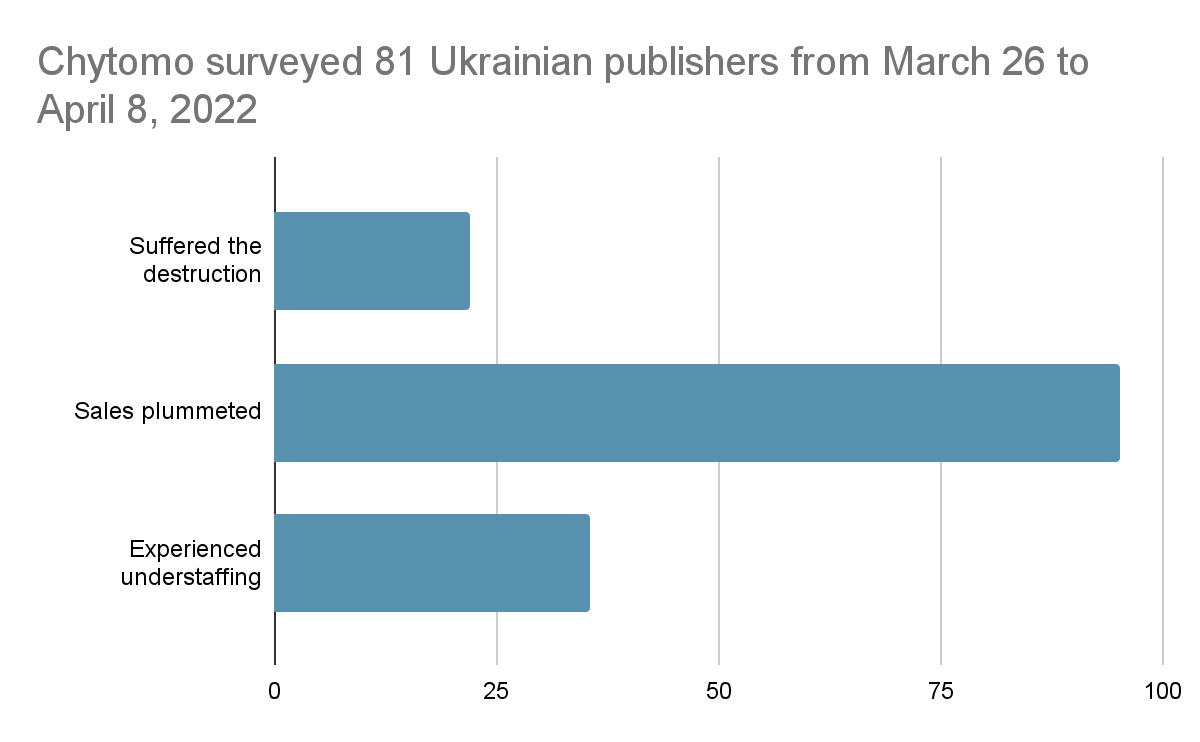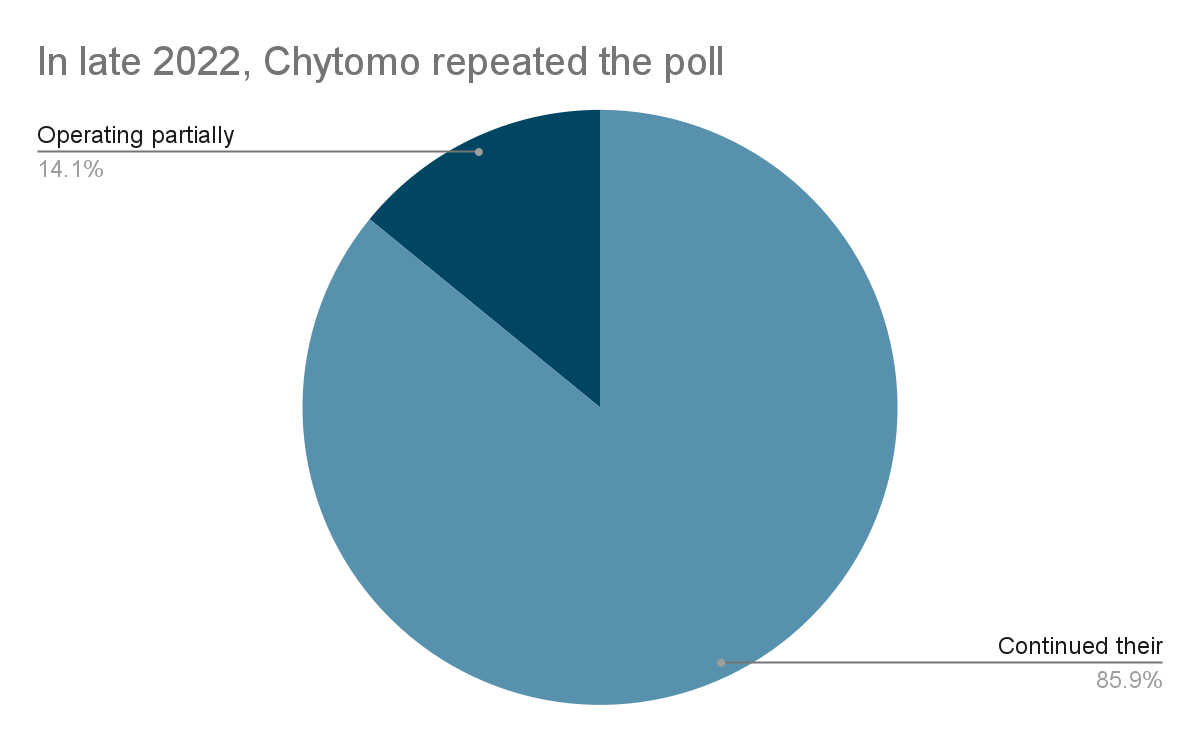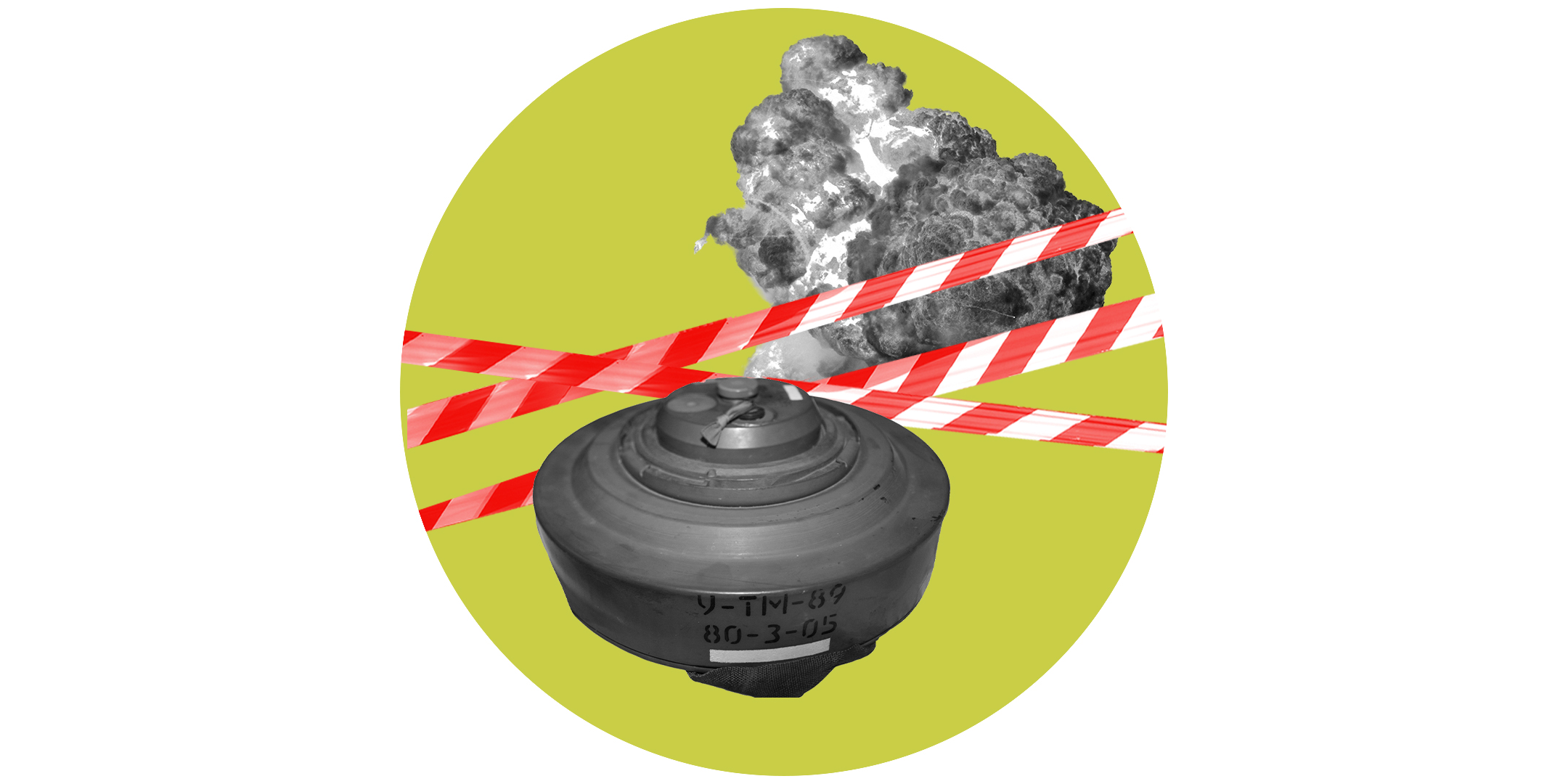
WHAT CHALLENGES UKRAINIAN PUBLISHERS HAVE FACED
Ukrainian book publishing is developing amid a permanent crisis — a spot-on observation of Halyna Hutsol, a researcher at the Book Chamber of Ukraine, which studies and monitors national publishing and media. In her article, she notes that after being weakened by the COVID-19 pandemic, the Ukrainian book market was returning to normal in 2022. However, it was hit again with problems no one in the industry could have imagined.

A fire following the Russian rocket attack on March 20, 2024, destroyed the printing factory Hurov&Co in the northeastern city of Kharkiv, where 80% of Ukraine's printing is concentrated. Photo: State Emergency Service
Publishing houses faced war challenges similar to those of many businesses in Ukraine. Among them are killing and destruction, evacuation and displacement, closure and layoffs, and more. The cultural project Chytomo surveyed 81 Ukrainian publishers from March 26 to April 8, 2022, to find out how they were holding up in the first month of the war.

The poll showed that 22% of publishing houses suffered the destruction of their infrastructure and logistics, such as bookstores, warehouses, printing facilities, and offices. 95.1% of publishers reported that their sales plummeted, and 35.5% experienced understaffing because many of their employees served on the front line. Medium and small businesses were more affected than larger publishing houses, which had enough resources to survive.
Despite the issues, 39% of publishing companies did not stop working, and 51.2% changed their form of activity, working partially, online or offline. 54.9% didn't change their locations, and 35.4% partially relocated their teams and production. For instance, the Nash Format editorial team told Chytomo they worked from different parts of Ukraine and abroad because they had "good experience of working online during quarantine."

In late 2022, Chytomo repeated the same poll and asked 85 publishers how their situation changed over the first year of the full-scale war. 85.9% of the companies said they continued their activities, and 14.1% reported they were operating partially. "Everyone is trying to work despite the difficult conditions," the cultural project said.
HOW UKRAINIAN BOOK PUBLISHERS WORK TODAY

One of the bookstores in Kyiv. Photo: Rubryka
Ukrainian book publishing is experiencing a revival, with ambitious plans to attract more readers and sales. Authors are crafting new novels, publishers are translating international bestsellers, and the industry has recently published more work than in 2022. The Book Chamber of Ukraine reported that 15,187 book titles with a circulation of 24.7 million were released into the market in 2023. It marked a positive growth in the industry compared to the previous year's 9,691 titles with over 11.7 million circulation.

Yunisoft Printing Factory in Kharkiv. Photo: Dmytro Kuzubov/Texty.org.ua
With more books being produced, Ukraine has seen the opening of new bookstores and publishing houses. According to the Ukrainian Book Institute (UBI), 19 new publishing companies, including "One More Page," Velorum, Projector Publishing, Kitap Qalesi, Prometei, and more, launched in 2023. Ukraine's largest bookstore chain, KnyharniaYe, opened 22 new shops last year — a record in the company's 16-year history. Larysa Huzhvynska, KnyharniaYe's strategic development director, told Forbes that the business plans to open 43 more stores by 2025.

KnyharniaYe Bookstore in Ukraine's western city of Lviv. Photo: KnyharniaYe
The current rise of the Ukrainian book market has been heavily influenced by a new law adopted in 2023. It bans the import of published work from Russia and Belarus and makes translations of foreign books to the Ukrainian language obligatory, Oleksandra Koval, director of the Ukrainian Book Institute, told Rubryka. Before the war and new legislation, the share of books in the Russian language reached 50–70% of the market, and Russian books imported were cheaper than those from local publishers.

Russian books to be written off in the library in the northern city of Chernihiv. Photo: Suspilne
The new law provided more space for Ukrainian literature on the market, and Ukrainians with a renewed sense of national identity, who refuse to consume any content in Russian, have thirsted for quality publications in Ukrainian. Publishing houses have been going the extra mile to meet the demand.
INTERNATIONAL SUPPORT AND ACTIVISM
Over the course of two years, Ukrainian publishers have seen renewed interest abroad in the rights to translate and publish Ukrainian authors. The UBI director, Oleksandra Koval, stated that over 130 translations of Ukrainian books into foreign languages were published in 2023.
"At [last year's] Frankfurt Fair alone, Ukrainian publishers held about 400 negotiations about the sale of licenses for the translation of Ukrainian literature. The results of these and other meetings will be visible as early as next year," she said.

Ukrainian books in English. Photo: Ukrainian Pravda
In 2023, Ukraine was presented at 12 international book fairs and 19 literature festivals. The book events in London, Warsaw, and Guadalajara (Mexico) made Ukraine their key theme, showcasing cultural programs and dozens of publishing houses. In 2024, Ukrainians have so far displayed their work to visitors at book fairs in London, Leipzig, Brussels, and Bologna.

Leipzig Book Fair, Germany. Photo: Vira Dumke for Ukrainian Book Institute
Ukrainian Book Institute reported that 5,000 people visited the Ukrainian stand at the Leipzig Book Fair from March 21–24. Writer Andrii Kurkov, who presented Ukraine at the annual Brussels Book Fair on April 4–7, noted a strong interest in Ukrainian literature.

Ukrainian books at 2024 Bologna Book Fair, Italy. Photo: Ukrainian Book Institute
A whopping 20 publishing houses also participated in the Bologna Book Fair (April 8–11) in Italy, both representing Ukrainian authors and raising awareness of Russian war crimes. The national stand included leaflets with information about Ukrainian children killed and deported by Russia, writers, and translators who died in the war, and cultural facilities, including libraries, destroyed by the Russian army.

Ukrainian books at 2024 Bologna Book Fair, Italy. Photo: Ukrainian Book Institute
"Ukrainian Book Institute has participated in the Bologna Children's Book Fair since 2018. We are here to make our voices heard by as many people in Europe and around the world as possible," said director Oleksandra Koval. "We are also here to showcase the incredible strength of Ukrainian publishing, which creates wonderful books for the youngest generation of readers despite the terrible war."

Ivan Malkovych, the founder of the A-ba-ba-ha-la-ma-ha publishing house, at a printing facility in Kharkiv, Ukraine
WHAT COMES NEXT?
Supported by both national and foreign audiences, book publishers persevere, pushing forward the development of Ukrainian literature. The industry still faces the same challenges of war. It is confronted with problems like electricity blackouts and the shortage of printing facilities and qualified specialists, but it doesn't give up. Ukrainian publishing houses give a chance to more authors, invest in printing equipment, and spend a fortune on licenses to translate books by international authors. They look into the future with optimism and hope and believe in Ukraine and its people.
Если вы нашли ошибку, пожалуйста, выделите фрагмент текста и нажмите Ctrl+Enter.














